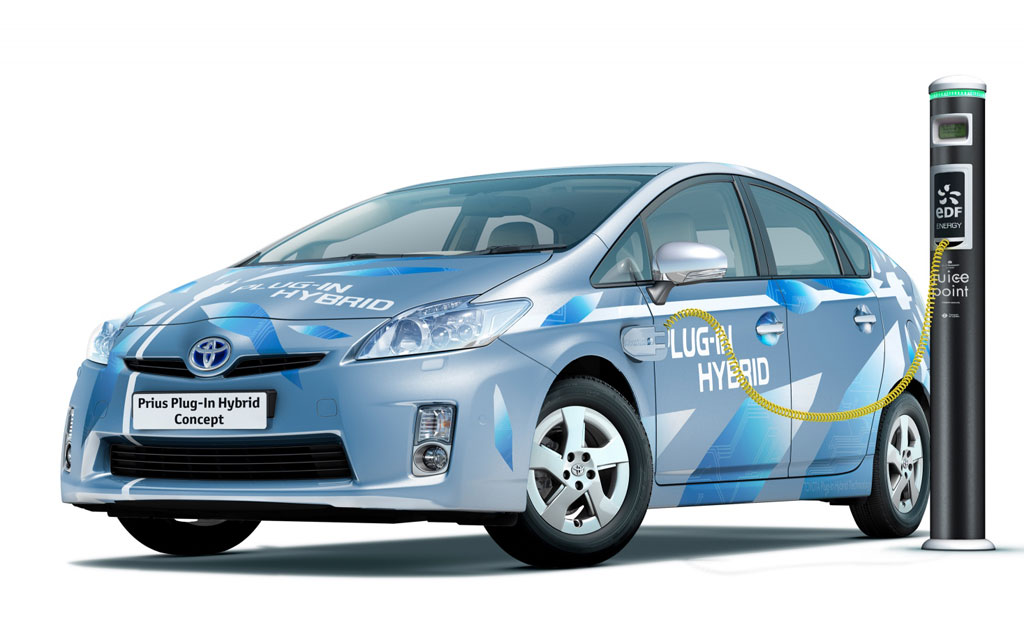Hybrid and plug-in fans, not to mention the Prius faithful, have been eagerly waiting for Toyota's response to the reams of copy benerated by the 2011 Chevrolet Volt extended-range electric vehicle.
Surely Toyota, which invented the modern hybrid vehicle and has now built 1.5 million Toyota Prius models since 1997, wouldn't let itself be leapfrogged by General Motors?
Prius Plug-In Hybrid a go
Well, the 2010 Toyota Prius Plug-In Hybrid is now ready to go.
Toyota had officially unveiled the plug-in Prius at September's Frankfurt Motor Show, but the first U.S. showing of the final model came at this week's Los Angeles Auto Show.
Toyota will start offering Prius Plug-In Hybrids early next year. But the company won't be offering them to you.

2010 Toyota Prius Plug-in Hybrid Concept

2010 Toyota Prius Plug-In Hybrid, 2009 Los Angeles Auto Show

2010 Toyota Prius Plug-In Hybrid, 2009 Los Angeles Auto Show
Select fleet partners
Of just 150 Prius Plug-In Hybrids destined for the U.S., exactly none will go to retail consumers. They're all destined for fleets, which Toyota terms "select partners," as part of a long process of "market/consumer analysis and technical demonstration" of plug-in vehicles.
This month, just slightly before the U.S. models arrive, Toyota will deliver the first of 350 more Prius Plug-In Hybrids to business and government partners in Europe and Japan. Again, regular consumer buyers are locked out.
Goal: Gather real-world data
Toyota's goal in testing this small number of plug-in Prius cars is to gather real-world data on how and where users plug them in, how often the cars run on electricity alone, and how much they revert to "hybrid mode" and run just like a regular, non-plug-in Prius.
The 2010 Toyota Prius Plug-In Hybrid is the company's first tentative step into the world of plug-in vehicles. The company claims it runs up to 13 miles and can reach speeds of 60 miles per hour on electric power.
Compared to battery electric vehicles without gasoline engines, Toyota says, electric running on short trips and hybrid opeation thereafter"alleviates the issue of limited cruising range" caused by lengthy recharge times.
Bigger battery and lithium-ion too
The 2010 Prius Plug-In Hybrid uses a lithium-ion pack with more energy capacity than a standard 2010 Prius: roughly 4 kilowatt-hours as compared to the standard nickel-metal-hydride pack's 1.6 kWh.
Toyota has only committed to building 500 Prius Plug-In Hybrids. But in the meantime, Prius owners and enthusiasts will soon exceed that number of plug-in Prius hybrids modified with third-party conversion kits.
Extreme caution
The company is being extremely cautious on progressing beyond the Hybrid Synergy Drive system used in its many hybrid models.
The company has built approximately two-thirds of all the hybrids on the road globally, but none of them plug into the electric grid to recharge their battery packs.













